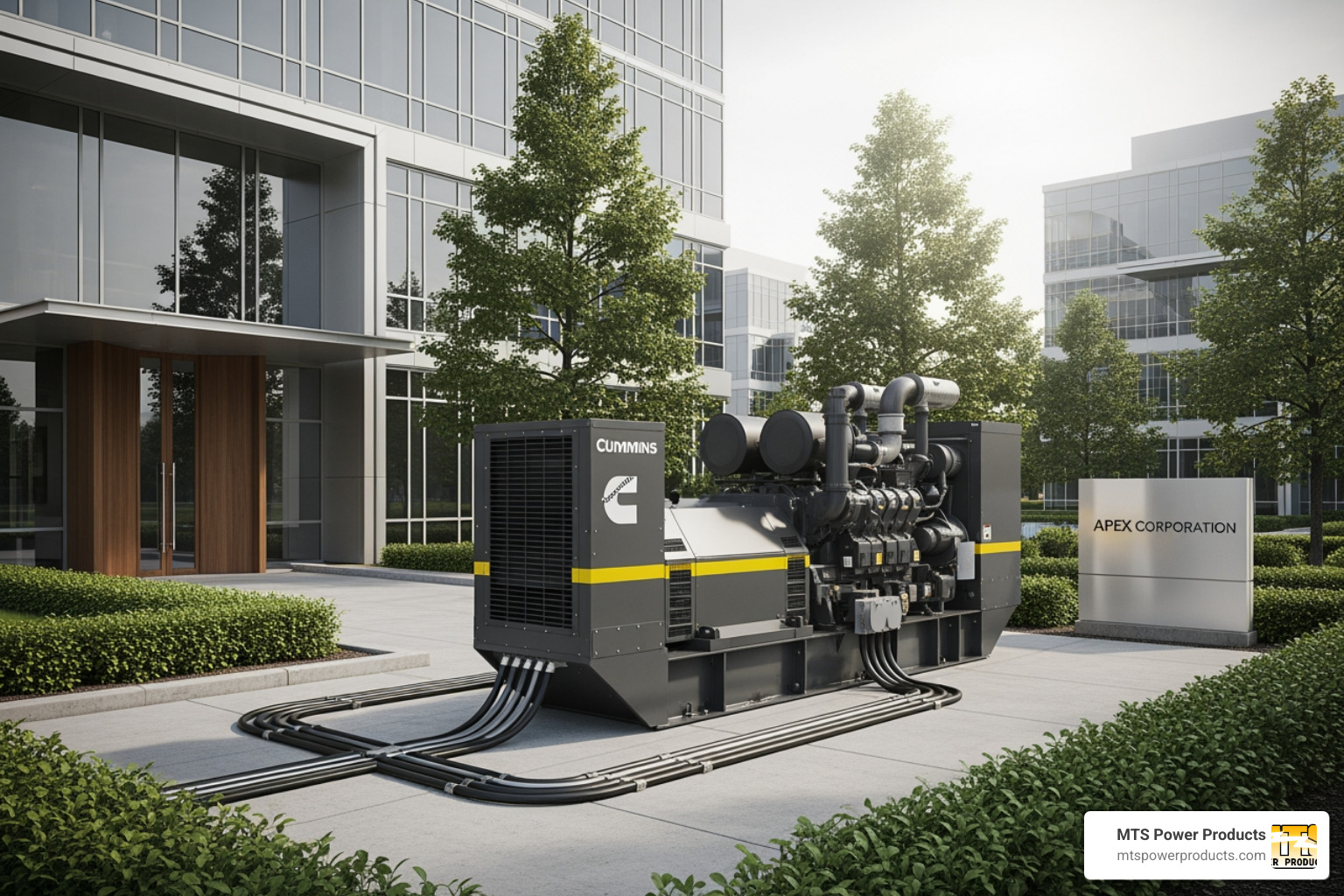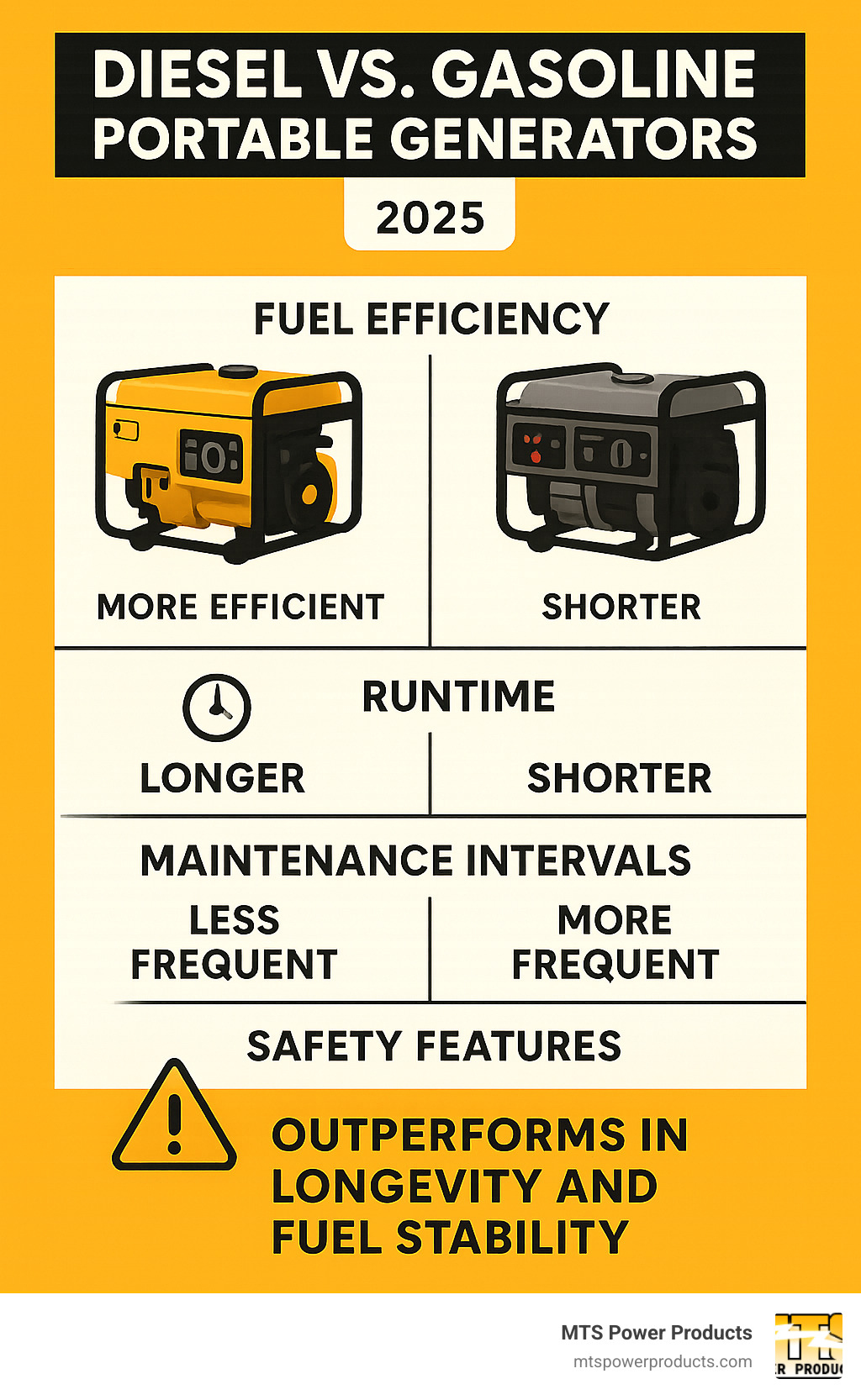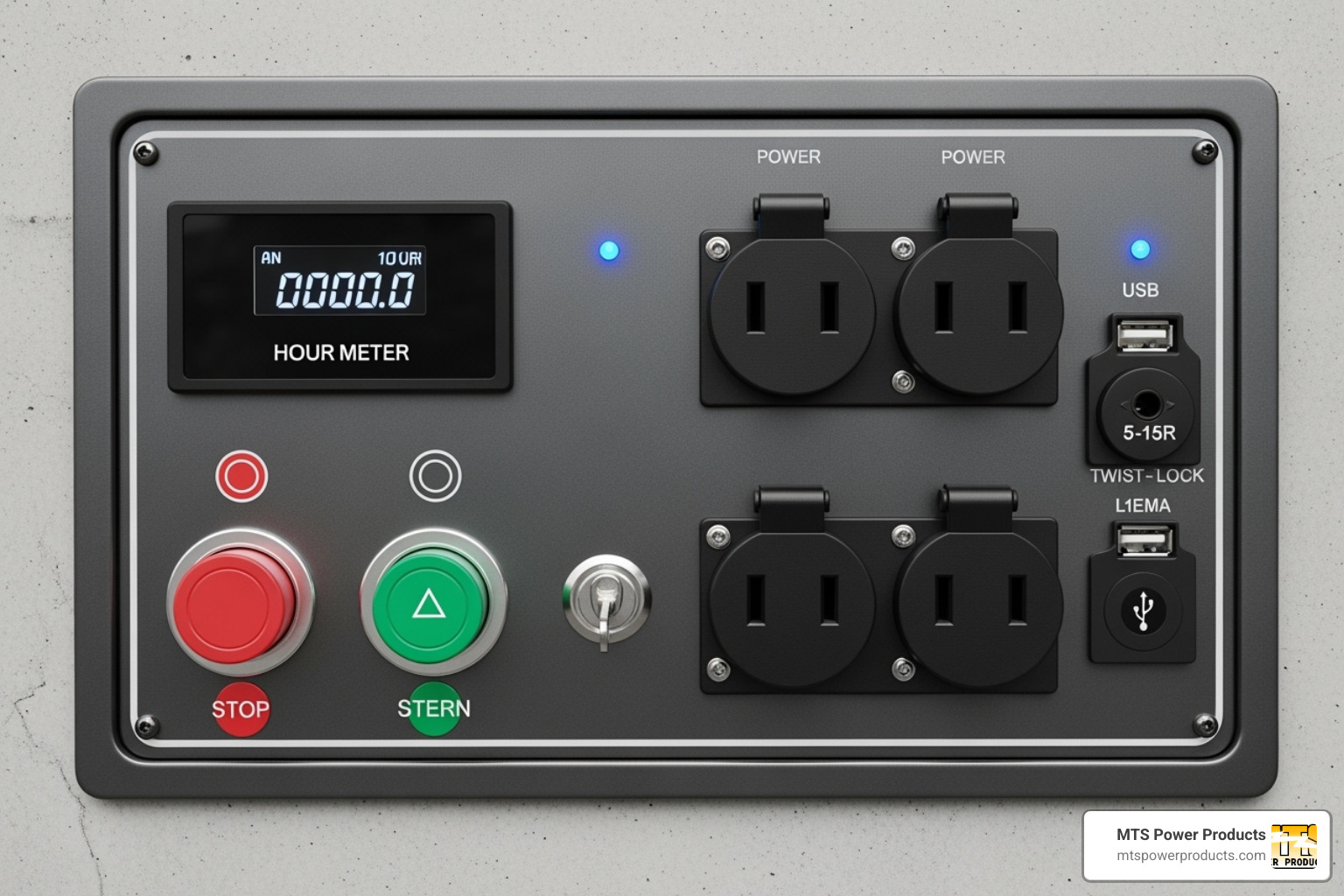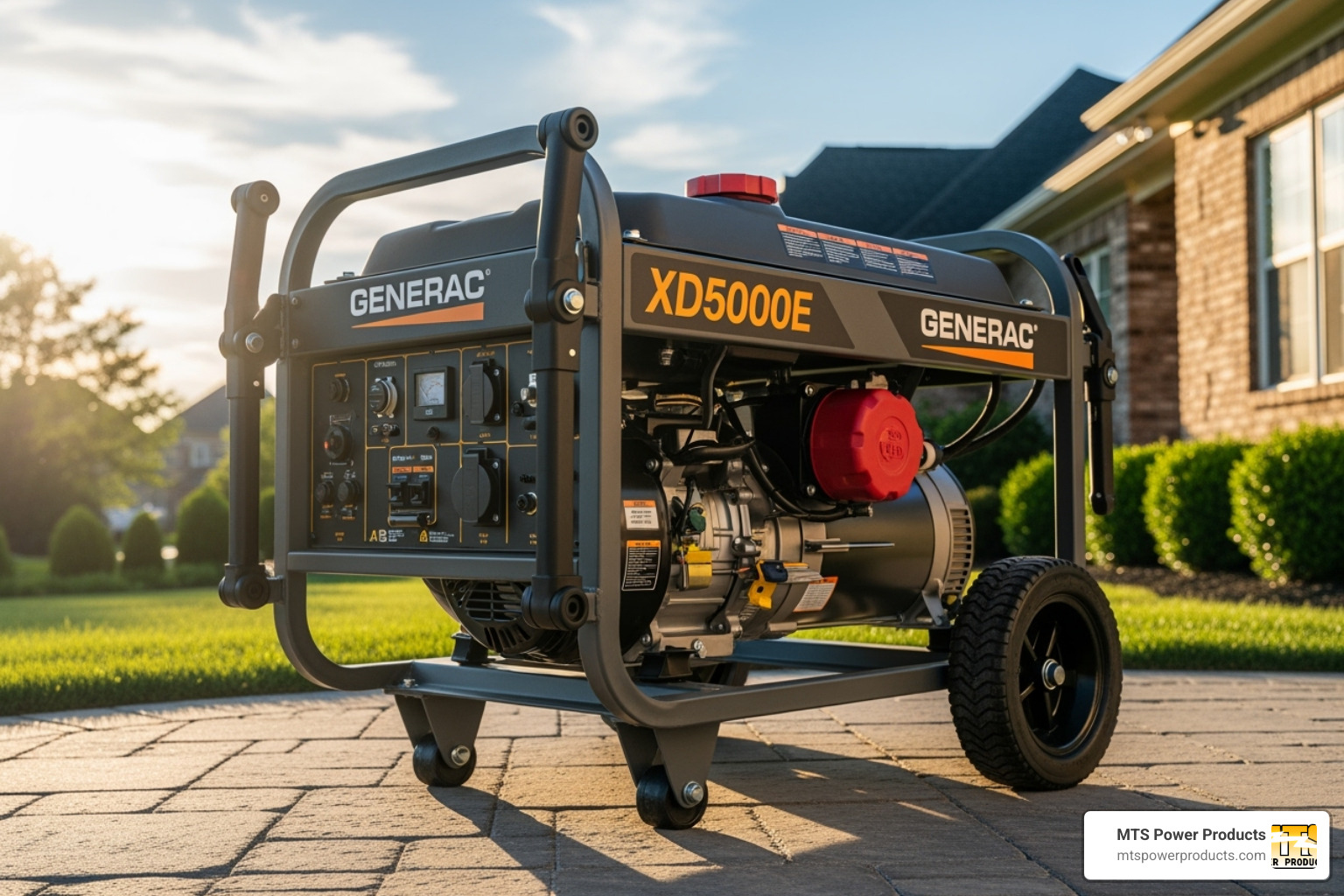
Buy Direct
from the Manufacturer
Sell our Products
Become a Distributor
Discounts
on volume purchases
Visit Us
at our Miami office
from the Manufacturer
Become a Distributor
on volume purchases
at our Miami office
When the lights go out, a diesel portable generator for home use becomes your lifeline to essential power. Power outages can cause financial losses from spoiled food, lost work, and property damage. Unlike gas-powered alternatives, diesel generators are an increasingly popular choice for homeowners seeking reliable backup power due to their distinct advantages.
Homeowners choose diesel for its superior fuel efficiency, which leads to lower operating costs and longer runtimes—some models run for over 30 hours on a single tank. Diesel engines are also known for their durability and long lifespan, requiring less maintenance over time. Critically, diesel fuel is less flammable and has a much longer shelf life than gasoline, making it a safer and more stable choice for emergency preparedness. With models ranging from 5kW to 15kW, there’s a diesel portable generator for every home’s needs.

Diesel portable generator for home use helpful reading:
When choosing backup power, the fuel type—gasoline, propane, or diesel—is a key decision. Diesel portable generators for home use offer compelling advantages that make them a superior choice for many homeowners.
A primary benefit is fuel efficiency. Diesel engines consume 30-50% less fuel than comparable gasoline models, resulting in significantly longer runtime. For instance, the Generac XD5000E can run for over 32 hours at half load on its 12-gallon tank, minimizing the need for refueling during an extended outage.
Diesel engines are also built for longevity. Their robust, industrial-grade construction allows them to run for thousands of hours before requiring major service, leading to a longer engine lifespan and lower maintenance needs compared to gasoline generators.
Fuel safety is another critical advantage. Diesel is far less flammable than gasoline, reducing fire risk during storage and refueling. This is complemented by diesel’s long shelf life; it can be stored for 6-12 months or more, while gasoline can spoil in just a few months. This stability ensures your fuel is ready when an emergency strikes.
These factors—efficiency, durability, and fuel stability—contribute to lower lifetime operational costs. Additionally, diesel engines produce high torque output, enabling them to handle the large starting loads of appliances like refrigerators and well pumps without faltering.
For homeowners serious about reliable backup power, these advantages make diesel portable generators for home use a smart long-term investment. The combination of efficiency, durability, and safety is hard to beat.
Want to dive deeper into why diesel makes sense for emergency power? Check out our comprehensive guide: Why an Emergency Diesel Generator is the Best Power Solution.
Selecting the right diesel portable generator for home use involves understanding your power needs and key generator features. The most crucial step is to accurately size your generator.
When you’re looking for a diesel portable generator for home use, these key features will impact performance, convenience, and safety.

Understanding these features will help you select a generator that provides not only power but also convenience and peace of mind. We always recommend consulting our guide on Choosing the Best Diesel Home Generator for more detailed insights.
To choose the right size diesel portable generator for home use, you must calculate your power needs, differentiating between running watts (continuous power) and starting watts (surge power). Appliances with motors like refrigerators, AC units, and pumps have high starting watt requirements.
Follow these steps to calculate your needs:
For example, to run a refrigerator (600 running/1800 starting watts) and lights (100 running watts), you’d need a generator with at least 700 running watts and 1800 starting watts.
For precise calculations, use a detailed resource like Champion’s Wattage Reference Chart and their Guide to Calculating Wattage. It’s often best to power only essential circuits, a task an electrician can help prepare your home for. For more on ensuring your home is prepared, explore our information on Emergency Diesel Generators.
We’ve researched the most reliable models available this year, focusing on performance, user feedback, and features that matter to homeowners. Here are some standout options for your home backup power needs.
For extended power needs, the Generac XD5000E is a top contender. Known for its endurance, this diesel portable generator for home use is a reliable workhorse.

It delivers 5000 running watts (5500 starting watts), enough for essential appliances and a small AC unit. Its standout feature is the 32.4-hour runtime at 50% load, thanks to a large 12-gallon fuel tank that minimizes refueling. The unit is powered by a robust Yanmar engine, known for its industrial-grade reliability. It also produces power with low THD, making it safe for sensitive electronics, and is CARB compliant, meeting strict emissions standards. While it includes a recoil start, the electric start feature offers much easier operation.
You can dive deeper into the specifications and read user reviews on the Generac XD5000E Product Page to see if this long-running champion fits your needs.
For those who need more power with less noise, the GeneratorJoe GJRA-009D101 is an excellent choice for a diesel portable generator for home use.
This unit provides a substantial 9 kW output (9000 watts), capable of running multiple home circuits. Its key feature is its quiet operation, rated at just 64 dBA when enclosed—comparable to a normal conversation. This is achieved through a liquid-cooled engine, which runs more quietly and efficiently than air-cooled designs. The high-quality Mecc-Alte alternator provides exceptionally stable power (less than 3% voltage variation), which is ideal for sensitive electronics. This model is also prime power capable, meaning it can be used as a primary power source for extended durations, not just for emergencies. It offers over 16 hours of runtime at half load.
For detailed specifications and availability, check out the GeneratorJoe GJRA-009D101 Product Page to see if this quiet powerhouse matches your home’s needs.
When weighing your options for a diesel portable generator for home use, having the key specifications side by side makes the decision much clearer:
| Model Name | Running Watts | Fuel Tank (Gal) | Runtime @ 50% Load | Noise Level (dBA) | Key Feature |
|---|---|---|---|---|---|
| Generac XD5000E | 5000 | 12 | 32.4 hours | Not specified | Longest Runtime, CARB Compliant, Low THD |
| GeneratorJoe GJRA-009D101 (Enclosed) | 9000 | Typical capacity | >16.4 hours | 64 dBA | Very Quiet Operation, Liquid-Cooled, Stable Power |
The choice between these models often comes down to your priorities: maximum runtime versus quieter operation. Both offer the reliability and clean power that make diesel generators such a smart choice for home backup power.
Operating your diesel portable generator for home use safely is your top priority. With proper precautions, your generator will serve you reliably for years to come.
The most critical rule is to prevent carbon monoxide (CO) danger. Never run a generator indoors, including in a garage or basement, as CO is an invisible, odorless, and deadly gas.
For proper placement, position the generator at least 20 feet from your home with the exhaust pointing away from all doors, windows, and vents. Ensure adequate ventilation around the unit to prevent overheating and CO buildup. For weather protection, use a generator-specific cover or canopy that allows for proper airflow and does not trap exhaust.
Fuel storage safety is also key. Store diesel in approved containers in a cool, well-ventilated area away from living spaces. Be aware of warnings like the California Proposition 65 Warning, which highlight the importance of proper handling and ventilation.
For comprehensive safety guidelines and setup information, check out our resources on Diesel Generator Sets.
Connecting a diesel portable generator for home use to your home’s electrical system must be done correctly to prevent fatal accidents and property damage. Avoiding backfeeding—sending electricity back to the utility lines—is essential to protect utility workers.
Professional installation of a transfer switch or interlock kit is non-negotiable for connecting to your home’s panel.
For more information about integrating these powerful systems with your home, explore our guide on Diesel Gensets.
A well-maintained diesel portable generator for home use has a typical lifespan of 10,000 to 30,000 hours. For typical home backup use, this translates to decades of service.
To maximize its life, perform regular maintenance tasks according to the manufacturer’s schedule. Key tasks include:
Following the manufacturer schedule, often tracked with a built-in hour meter, is the best way to ensure reliability. Modern diesel generators also meet strict environmental regulations like EPA Tier 4 emission standards, making them a responsible choice. For insights into the companies producing these reliable units, check out our information on Diesel Generator Manufacturers.
Choosing a diesel portable generator for home use is a big decision. Here are answers to the most common questions we hear from homeowners.
The cost of running a diesel portable generator for home use involves several factors. While the initial purchase price is typically higher than for gasoline models (e.g., the Generac XD5000E is around $4,019), they offer excellent long-term value.
Key economic benefits include:
While no generator is silent, the noise from a diesel portable generator for home use can be managed. Noise is measured in decibels (dBA); a normal conversation is around 60 dBA.
The biggest factor is the design:
Smart placement strategies also help. Position the generator as far from living areas as is safely possible, and use structures like fences or landscaping to buffer the sound. Choosing an enclosed model is the most effective way to minimize noise for you and your neighbors.
The answer depends on your home’s size and what you consider “whole house” power.
Due to wattage limitations, most diesel portable generators for home use (typically 5kW-15kW) cannot power an entire home simultaneously, especially if you have central air conditioning or an electric stove. A 5,000-watt generator like the Generac XD5000E is excellent for powering essential circuits—refrigerator, lights, sump pump, and small appliances.
For true whole-house power, a much larger, permanently installed standby generator (20kW+) is required. The key difference between standby vs. portable generators is capacity and automation. Standby units power everything automatically, while portables power select items and require manual setup. A portable diesel generator is a cost-effective solution for maintaining comfort and safety by powering your most critical needs.
For comprehensive guidance on sizing your home’s power needs, check out our resources on Household Diesel Generators.
Choosing a diesel portable generator for home use is a smart investment in your home’s security and comfort. As we’ve covered, diesel generators offer best reliability, fuel efficiency, and safety. Their long engine life, stable fuel storage, and lower operating costs provide excellent long-term value.
By correctly sizing your generator and understanding key features, you can make an informed decision that provides peace of mind during any power outage. Whether you prioritize maximum runtime or quiet operation, there is a diesel model that fits your needs.
At MTS Power Products, our expertise lies in providing custom solutions custom to your specific requirements. We go beyond just selling products; we offer professional guidance to help you design the perfect backup power system. Our exclusive McPherson Controls line provides advanced features like remote monitoring for improved control and safety.
Based in Miami, we are minutes from major air and sea ports, allowing us to deliver professional-grade power solutions worldwide. Don’t wait for the next outage to leave you in the dark. Secure your family’s safety and comfort by taking action today.